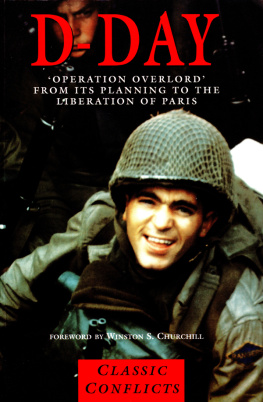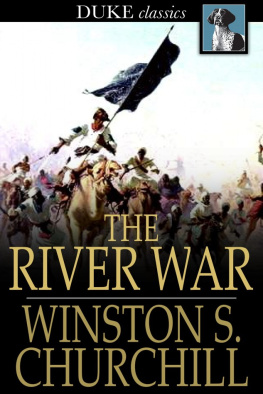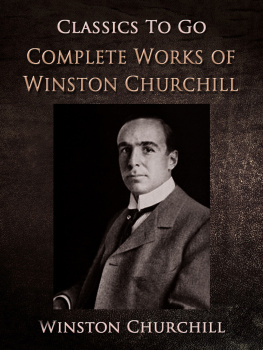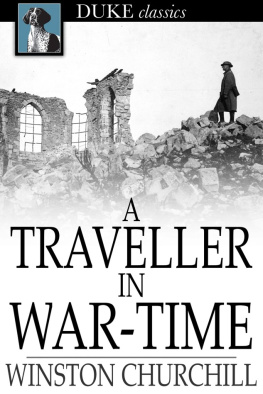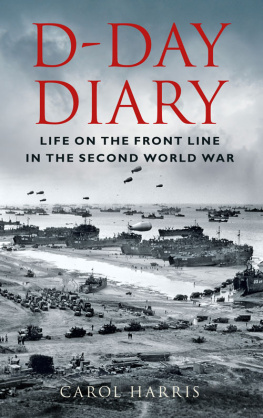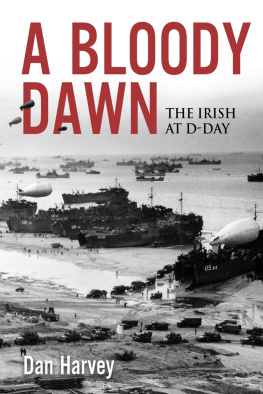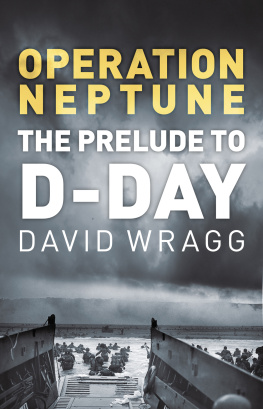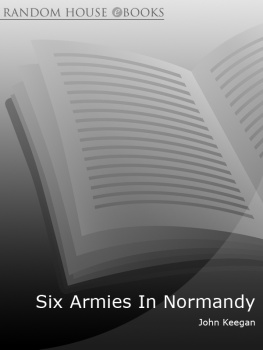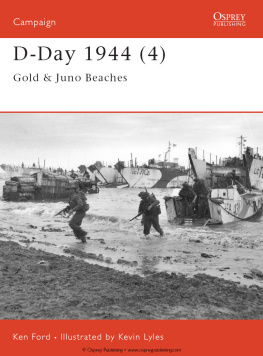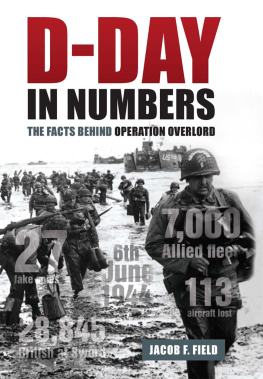CLASSIC CONFLICTS
D-DAY
CLASSIC CONFLICTS
D-DAY
OPERATION OVERLORD FROM ITS PLANNING TO THE LIBERATION OF PARIS

CONTENTS
THE SECOND FRONT DEBATE
I n an address to students at the US Army War College in the mid-1920s, Brig. Gen. Fox Conner harshly characterized the business of fighting as part of an alliance. While serving in France as an operations officer on Gen. John J. Pershings staff, he had witnessed the perpetual inability of the Allied and Associated powers to settle on a common strategy against the Germans or even to agree on allocation of resources. The incessant pursuit of purely national interests, in his opinion, prevented the Allies from bringing the full weight of their military and economic power efficiently to bear against their common enemy. Thus, as he pondered the problem for the benefit of the Armys future strategists, Conner concluded that, if he had to go to war again, he would prefer to go to war against an alliance, rather than against a single power.
Conner was a considerable scholar of the military art, but his strictures on the perils of alliances had already been voiced centuries before by Sun Tzu, the ancient Chinese philosopher of war, who warned against entering into alliances without being entirely certain of the war aims of the potential ally. Hastily conceived agreements, Sun Tzu suggested, could easily founder because two powers fighting a common foe might themselves have conflicting intentions. His was sound advice, for whenever two or more nations combined their efforts in war during the succeeding centuries, bitter disagreements, rather than concord, were often the rule. In fact, one of the peculiarities of alliances is that successful ones have always tended to disintegrate in discord as fast as unsuccessful ones. That certainly was the American experience of World War I, the first major occasion since the Revolution when the United States had waged war in concert with allies. As isolationism and the depression jointly spiraled through the 1930s, a residuum of suspicion was directed even against the United Kingdom. There were those, both in the Army and out, who believed American naivety had been cold-bloodedly exploited in 1917 in a war to preserve the British Empire.
The Anglo-American alliance of World War II stood in contrast to the experience of 191718 as perhaps the most successful coalition in the history of modern warfare. From the very beginning, the United States and the United Kingdom adopted the defeat of Germany as their common goal. Agreement on ultimate aims nonetheless did not imply agreement in detail, and the progress of the war was marked by periodic disputes. Among the most famous was the occasionally acrimonious debate between Generals Dwight D. Eisenhower and Sir Bernard L. Montgomery about the proper strategy to be employed on the European continent: the broad front or the knife-like thrust. The springs of such disagreements arose from the gradually evolving leadership of the coalition. Until 1943, Britain was the dominant partner and consequently more powerfully influenced the course of the alliance. After 1943, however, the United States, by virtue of its contribution of the greater mass of manpower and economic power, became senior partner. The Second Front debate, more than any other, was emblematic of that shift in coalition leadership. It was, furthermore, the most significant difference of opinion that arose between the United States and Britain during the war. Both nations agreed that Germany had to be assaulted, but the specific agreement that the assault would be launched from England, across the English Channel, to the coast of France, was reached only after extended discussion. At its root, the Second Front debate was the question of whether the alliance would adhere to a long-term plan for a cross-channel attack, or would retain the flexibility to take advantage of the military situation at the time of attack to strike where Germany was weakest. Economic, political, and military differences, as well as differences in national styles of waging war, complicated the debate.
The American Position
Even before the fall of France in May 1940, the United States was slipping away from the dubious neutrality that it had proclaimed at the start of the European war. President Franklin D. Roosevelt declared a national emergency and ordered the Navy into the Atlantic, ostensibly on neutrality patrols, but in fact to help the British by convoying ships at least part of the way across the danger zone. Against the possibility that the United States would eventually enter the war, American naval and military staffs began a series of unofficial, unrecognized, but nonetheless crucial discussions in Washington between January and March 1941. The most important single decision the military leaders reached in these AmericanBritish Conventions, or ABC talks for short, was that Germany would be the number one enemy of any future Anglo-American partnership. Such a decision was contrary to long-standing assumptions of Army and Navy war planning. Plan Orange, meticulously refined over more than two decades, outlined the strategy to be employed when the United States and Japan eventually went to war, as many naval and military officers assumed would eventually happen. Tension in the Pacific increased throughout 1941, and thoughtful observers of the Far East warned of Japanese aggressive designs that would almost certainly involve American interests and possessions. Despite this, American leaders agreed that any war that might begin with Japan would have to take second place; primacy of effort would go to defeating Germany.
Much of this reflected President Roosevelts conviction that the fate of the United States was indissolubly linked with that of the United Kingdom. The continued existence of the latter was in the best interests of the United States, not only because of the commonality of language and culture, but also because Britain stood as a bulwark against any possible Axis aggression in the Americas. American armed forces in 1941 were frankly unready for global war, and it was the British fleet, guaranteeing control of the Atlantic, that provided security during the period of national mobilization that the President was attempting to hurry. The President and his principal advisors were likewise convinced that the United States should do that which was morally right, rather than just that which was politically expedient. The conclusion Roosevelt drew was that American energies should be focused in support of the British to defeat the greatest threat to the free world. That threat, he concluded, was Germany. Prime Minister Winston Churchills delight with the agreement, however, was soon to be tempered by the American view on how it should be carried out. American plans for the impending war were conditioned by an interplay of military philosophy and economic and geographic constraints that did not affect the United Kingdom.
One aspect of European military thought that had fallen on fertile ground in the United States came from one of the most profound military thinkers of the century, Maj. Gen. J. F. C. Fuller, a highly experienced British officer whom many regarded as the foremost exponent in the world of armored warfare. Fullers enumeration of the principles of war appealed greatly to Americans. A listing of the most important considerations in military operations naturally appealed to the mechanically-minded. Yet the principles of war were more than just a check-list for military commanders. They were, rather, an organized way of thinking about war, and most officers saw the principle of the objective as far and away the most important of all considerations. Their military ideal was a legacy of the American Civil War and the style of Gen. U. S. Grant, who tenaciously maintained contact with Gen. R. E. Lees Army of Northern Virginia until he achieved victory. Americans preferred a short, extremely violent war, with all possible resources brought to bear in continuous combat until the enemy was defeated. The principle of attacking a clearly defined and attainable military objective, almost always the main body of the enemys army, accorded well with the limitations under which American officers perceived they would have to fight.

